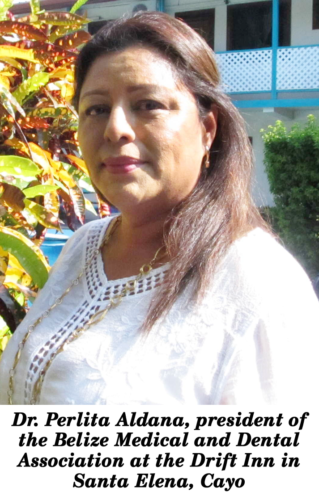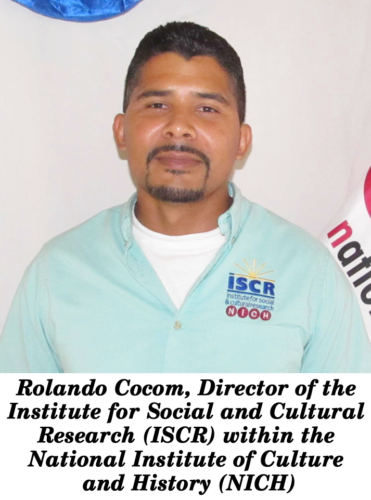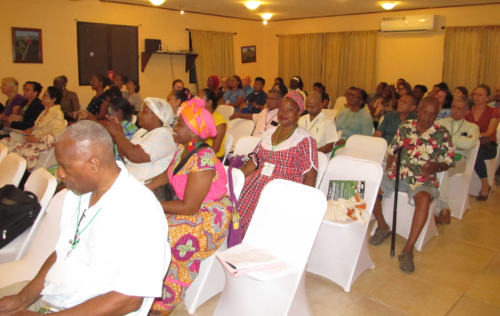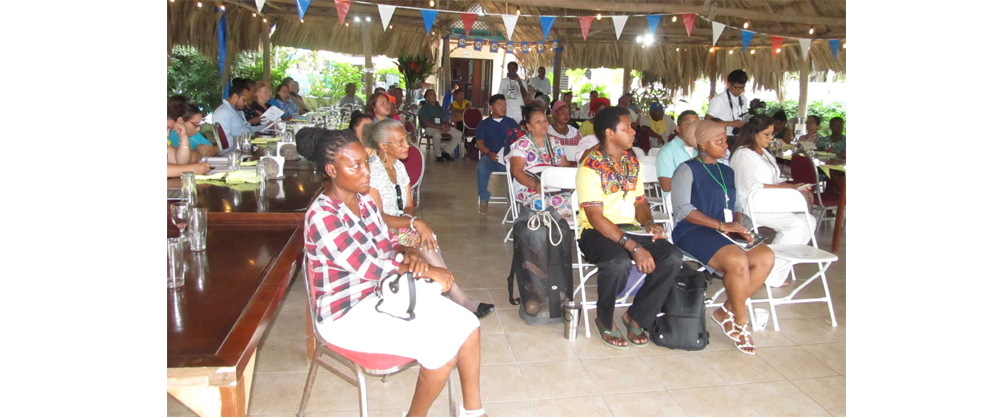by Orlando Pulido
SANTA ELENA, Cayo District, Sat. Sept. 28, 2024
The Second International Conference on Traditional Medicine began on September 26 at the Drift Inn in Santa Elena, Cayo, and continued to the 27th. The theme selected for the two-day event was “Traditional Healers, Gatekeepers of the Scientific and Technical Knowledge through our National and Regional Networks”.

Dr. Perlita Aldana, president of the Belize Medical and Dental Association, gave the keynote address on Thursday. She noted that the two-day event will catalyze both traditional healers and medical practitioners to move forward “as a whole.”
Dr. Aldana told Amandala, “We all know that herbal medicine, well, everything originated from herbal medicine, even the pharmaceuticals are done from herbal medicine.”
The conference was a meeting place for traditional healers and formally trained doctors, who shared the same podium in Cayo as they discussed herbs and their many benefits.
“[herbs] will continue to be used. As a medical doctor, my best interest is that people learn how to use it adequately; because sometimes people don’t know that there are certain medicinal plants that can be used, but if you are a sufferer of another ailment, that you should be careful with it. So, I always advocate for the correct use of all these things, and supervised,” said Dr. Perlita Aldana.

Organizing a National and International Conference such as the 2nd International Conference on Traditional Medicine was no easy accomplishment. Rolando Cocom, Director of the Institute for Social and Cultural Research (ISCR) within the National Institute of Culture and History (NICH), said that his organization provided substantial technical assistance to get the conference underway.
“We are very pleased to see so many practitioners of traditional and complementary medicine present, as well as formally and trained doctors within the system to be able to have conversations about how traditional knowledge, skills, and heritage can be incorporated, possibly within the formal system with an end goal to improve the lives of more Belizeans,” said Cocom.
Cocom also said that cultural knowledge of herbs is continuously under threat. As a result, on the first day of the conference, traditional healer Reggie Middleton led a five-second pause in the audience to recognize those traditional healers who have gone before us.
One medical doctor who has incorporated herbal medicine into his practice in Corozal is Dr. Marc Nadreau. He gave the Vote of Thanks on Thursday.
Dr. Nadreau has stated that the ancient Mayans, Chinese, Africans, and Romans used traditional herbs in their practice.
“We have a trace of minerals in our bodies, and the food that we eat, the herb that we take has a trace. As we take the extract, the chemicals from the herbs … we have to add all the minerals back into our body,” he said.
As the theme for this year’s conference implies, there is a scientific basis for the use and management of herbs. Professor Thippichetty Thiagarajan, along with Carlos Ruiz and Shanene Perez from the University of Belize, have written that the scientific community wants to validate the usage of herbs and their products with experimental evidence at various levels. It usually starts with bioassays by using model microbes that generally cause ailments in human beings.
At the University of Belize, undergraduate students carry out the Kirby-Bauer Disk Diffusion Susceptibility Test. The laboratory activity is carried out by extracting the active ingredients, using ethanol or methanol as solvents. The extracts were tested on Escherichia coli and Staphylococcus aureus, the two bacteria that are used as model microbes. The experiment tested the antibacterial effect of Rosemary, (Rosmarinus officinalis) and the result showed a promising outcome. Both methanol and ethanol extracts of rosemary plants had the same effect or better than the commercial antibiotics such as Erythromycin used in the medical field.
Another study done by the UB students explored the antibacterial effect of certain native ferns. The results from the study revealed that both ethanol and methanol fern extracts showed inhibitory effects on both bacterial species used in the study. Notably, the methanol extract of Adiantum (maidenhair fern) proved to be the most effective, and exhibited a significant inhibitory effect against both E. coli and S. aureus, achieving approximately 70% of the efficacy of Erythromycin, a recognized broad-spectrum antibiotic.
The outcomes in the discussion of herbs in Belize thus far have had an international dimension. The Universidad Intercultural Maya de Quintana Roo, Mexico, hosted the first International Conference of Traditional Healers in 2023. It was an opportunity for medical doctors and traditional practitioners from Belize and Mexico to share their knowledge on herbs.
The United Nations Office of the High Commission for Human Rights, the ISCR, the Belize Medical and Dental Association, the Belize Tourism Board, the Ministry of Sustainable Development, and other partners supported Belize’s Second International Conference on Traditional Medicine.

Participants of the conference issued several resolutions on Friday. According to Lucia Regina Ellis, the lead organizer of the event, one of the resolutions is to encourage healers to stay connected with the knowledge and practices they inherited from their ancestors; the other is to attempt to reduce diabetes, obesity, and its myriad of complications. Another resolution of the grouping, reported Ellis, is to develop an inventory of healers in the nation so “that there can be a referral system.”
Next year, the forum on herbs moves to Poptum in Guatemala. Both meetings held thus far in Mexico and Belize will be remembered as having developed a camaraderie among medical doctors and traditional healers in the region.

